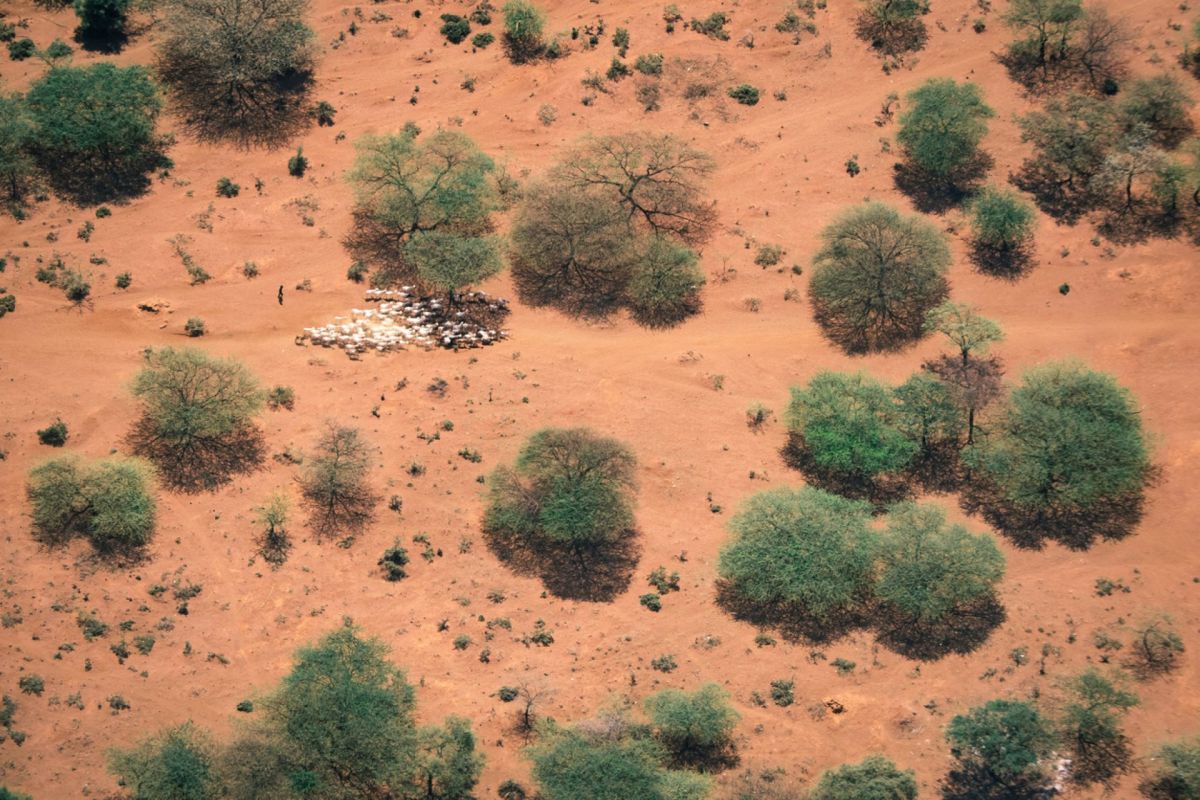Conservationist Lanoi Meitiekini, a leader of the nomadic Maasai tribe in Kenya, has witnessed the disastrous effects of hotter global temperatures firsthand.
A deadly combination of extreme heat and prolonged droughts has caused the traveling Maasai to stay in one place for longer periods of time, waiting for rain to come.
"Life has not been easy for my people here," said Meitiekini.
These harsh environmental factors have also led to the deaths of precious livestock, a cornerstone of the Maasai's pastoral lifestyle and a main source of income and livelihood for the tribal community.
The solution? Digging half-moon-shaped trenches into the farmland's soil. The crescent shapes, also known as water bunds or "earth smiles," act as small dams in the ground that easily capture rainwater, where it can soak into the dirt below.
Then, native grass seeds are planted in the half-moons, eventually sprouting and bringing the cherished sight of vegetation back to the land.
In Kenya, conservationist Lanoi Mitikani is working together with Maasai women to counter the effects of climate change.
— BBC News Africa (@BBCAfrica) November 16, 2023
They dig half-moon trenches into farmland, or 'water bunds' to restore drought-ravaged land. Maasai conservationist Lanoi Meitiekini explains how it works. pic.twitter.com/5CSQHiYdj0
The innovative approach helps to revive and protect the heat-scorched terrain while also ensuring the sustainability of the process by giving the Maasai complete ownership of the project.
"I wish to change the attitude of my community so that they can conserve and restore our dry lands for the current and future generations, by bringing the youth and women to take a lead on this," Meitiekini stated.
Regreening areas that have been severely damaged by rising global temperatures offers a bounty of benefits for their land and the planet.
Not only do these efforts improve soil quality and water availability, but bringing vegetation back to barren surroundings helps cool down the earth by storing carbon and creating more shaded areas. Naturally, this will also create a better habitat for regional wildlife by recovering native grasses and increasing biodiversity.
Meitiekini detailed the group's involvement with Justdiggit, a grassroots organization that fights global warming by regreening Africa, back in 2018.
Since then, they have used the half-moon method to restore nearly 7,500 acres of land.
"We are slowly learning how to deal with the droughts," Meitiekini says in an interview with BBC News. "I can only hope that the younger generations will pick up our eagerness and rely less on pastoralism."
To learn how you can support regreening efforts in Africa, visit the Justdiggit website for more information.
Join our free newsletter for cool news and cool tips that make it easy to help yourself while helping the planet.









